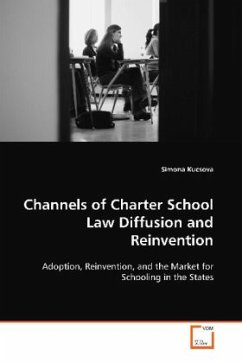While the existing research on charter schools
concentrates on the success of charter schools in
improving the whole public school sector through
experimentation and innovation, this book attempts
to evaluate the influence of a variety of factors on
the initial adoption, reinvention, and actual growth
of charter schools in the United States. The author
collected a unique and comprehensive data set that
contains charter law coding along with various state
level data to assesses the role of politics as well
as educational needs.
Recent methodological advances in two areas -
longitudinal structural equations and event history
modeling allow the author to test some of the
hypotheses related to the dynamics of state policy
evolution that have not been tested before.
Finally, using a Bayesian statistics she conducts an
institutional analysis in the post-adoption stage.
concentrates on the success of charter schools in
improving the whole public school sector through
experimentation and innovation, this book attempts
to evaluate the influence of a variety of factors on
the initial adoption, reinvention, and actual growth
of charter schools in the United States. The author
collected a unique and comprehensive data set that
contains charter law coding along with various state
level data to assesses the role of politics as well
as educational needs.
Recent methodological advances in two areas -
longitudinal structural equations and event history
modeling allow the author to test some of the
hypotheses related to the dynamics of state policy
evolution that have not been tested before.
Finally, using a Bayesian statistics she conducts an
institutional analysis in the post-adoption stage.

